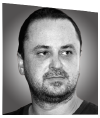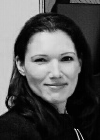RESTAURA Helpdesk (ENGLISH)
Contact persons
Working hours: Monday-Friday 9:00am-4:00pm
PPP-related international bodies
- EPEC, European PPP Expertise Centre (www.eib.org)
- PPPIRC, Public-Private Partnership in Infrastructure Resource (Center www.ppp.worldbank.org)
- PPP Knowledge Lab (www.pppknowledgelab.org)
Library
PDF files in English
- The European Commission's "Guidelines for Successful Public-Private Partnerships" - link
- PPP Canada, Identifying P3 Potential. A Guide for Federal Departments & Agencies - link
EPEC, The Guide to Guidance. How to Prepare, Procure and Deliver PPP Projects - link
FAQ
1) How does the Helpdesk service work?
The Helpdesk gives answers to PPP-related questions in five languages: English, Croatian, Polish, Slovak and Slovenian. You can contact the Helpdesk team either by e-mail or by phone between 9am and 4pm Monday to Friday.
2) Can I get detailed answers to my PPP-related issues in the Helpdesk?
Yes. The Helpdesk team provides the answers according to their best knowledge and as soon as possible, depending on how complicated the subject is.
3) What is the RESTAURA project? What outputs will it bring?
The RESTAURA project is aiming at identifying, testing, evaluating and promoting good practices on public-private partnership (PPP) approaches that revitalise historical cities and buildings. Its outputs will be strategies and action plans, tools, pilot actions and workshops for public authorities in Poland, Croatia, Slovakia and Slovenia willing to bring a new life to abandoned and deteriorated historic buildings with the use of PPP models.
4) Can I participate in the RESTAURA project’s activities?
Yes. The workshops for public authorities will be held between January and November 2018 in Poland, Croatia, Slovakia and Slovenia. Detailed information soon on the RESTAURA website: http://www.interreg-central.eu/restaura
5) Where can I get information about private companies potentially interested in participation in the PPP projects?
On each Helpdesk language page there is a section where potential partners are listed. Optionally, you can ask at the national authority responsible for PPP in your country or at the local public authority in your region.
6) Are there any courses/workshops/conferences/good practices on PPP in my country?
Currently PPP’s popularity is growing, so most probably there are. You can ask about them at the national authority responsible for PPP in your country or at the local public authority in your region.
7) How can PPP projects be linked with activities of NGOs involved in the cultural heritage field?
According to the so called Quintuple Helix model of cooperation, the non-governmental organisations can and should collaborate in the PPP projects along with research and development institutions, entrepreneurship, authorities and natural environments of society. They can act as consultants or experts in their field of interest, or even projects initiators. In practice, it all depends on the approach and attitude of the parties.










